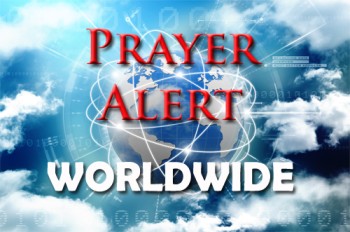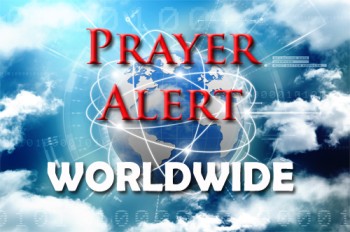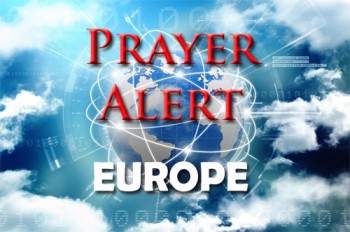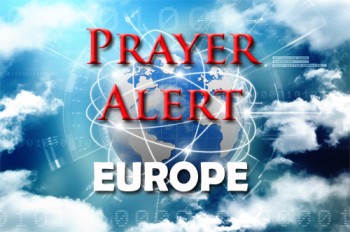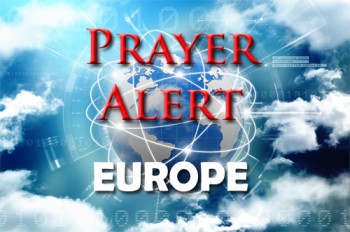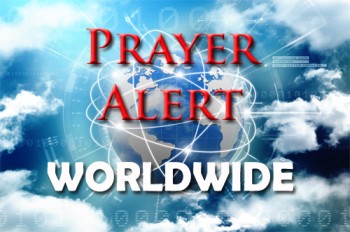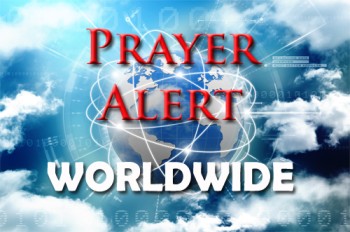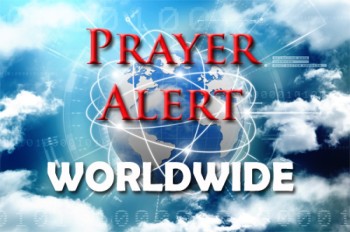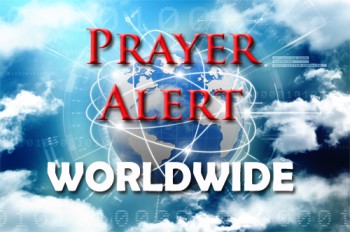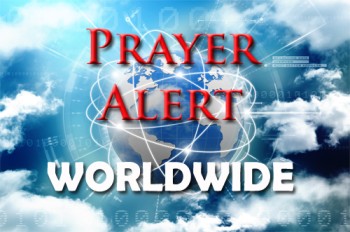Displaying items by tag: deaths
Nigeria: over 200 dead after massacres in Muslim-majority villages
A brutal massacre in Nigeria’s Kwara state left more than two hundred dead after gunmen attacked two Muslim-majority villages for rejecting extremist teaching. Witnesses said the attackers arrived on motorcycles, entered a mosque and shot worshippers, then moved house to house killing, kidnapping and burning residents. Many victims were tied before execution, and entire families were wiped out. Survivors fled, leaving only a few men to bury bodies among destroyed homes. Authorities blamed Boko Haram-linked militants, and the army deployed troops while local groups struggled to respond. The violence reflects Nigeria’s wider insurgency, where armed factions target both Muslims and Christians, spreading fear across communities. International partners are now providing intelligence support, yet the tragedy shows the urgent need for protection, reconciliation and healing for traumatised survivors who have lost loved ones and livelihoods. In related news, the USA is to send two hundred soldiers to Nigeria to train local forces: see Nigeria’s military recently claimed to have killed a senior Boko Haram commander and ten other militants in Borno.
Canada: eight dead after attack on small town school
A small Canadian community is grieving after a tragic school shooting in Tumbler Ridge, British Columbia, left eight people dead and many injured. The 18-year-old suspect, Jesse van Rootselaar, started to identify as a female six years ago and dropped out from the school at the age of 14. They first killed two family members at home before going to the school and shooting a teacher and four young students. Police responded within minutes and found the attacker dead from a self-inflicted gunshot wound. Authorities confirmed previous contact with the suspect related to mental health concerns. In a close-knit town of about 2,400 residents, the loss has deeply shaken a community where everyone knows one another. Hundreds gathered in vigils across the town and in Vancouver, sharing silence, tears and support for affected families.
Greece: smugglers blamed for fifteen deaths after speedboat collision
The deaths of fifteen Afghan and Moroccan migrants after a speedboat collision on 3 February with a coastguard boat have raised troubling questions about accountability at sea. The Greek authorities were quick to blame smugglers, saying the migrant vessel ignored warnings and manoeuvred dangerously. Yet critics urge caution, pointing to past incidents where official explanations later unravelled. In 2023, hundreds of migrants died when the fishing boat Adriana sank, initially described as unavoidable, before survivors alleged coastguard involvement. Years later, senior officers now face prosecution. In the current case, no testimonies from survivors have yet been made public and no independent video evidence has been released, so that there is uncertainty about what truly happened in the darkness. Greece remains a major entry route into Europe, while its government pursues a tough deterrence policy praised by some voters but condemned by human rights groups. The tragedy highlights the ongoing human cost of migration and the need for truth, transparency and compassion.
Russia: new report estimates over one million casualties in Ukraine war
A new report from the Centre for Strategic and International Studies estimates that around 1.2 million Russian troops have been killed, wounded or gone missing since the invasion of Ukraine nearly four years ago. Despite this enormous human cost, Russia has expanded its control of Ukrainian territory by only about 12%: in the past two years, only by 1.5%. The statistics challenge assertions that a Russian victory is inevitable, noting that Ukraine’s defensive strategy of trenches, mines, obstacles, drones and artillery has limited Russian advances to minimal gains. Mark Rutte has said that in December alone Russia lost 30,000 soldiers (in Afghanistan, they lost 20,000 in ten years). The toll far exceeds Russia’s losses in all its post–World War II conflicts combined. Economically, the war has weakened Russia’s long-term prospects, slowing growth, deepening labour shortages. The war is burdening the not only the current Russian economy but its future prospects, the report says: the country ‘is becoming a second- or third-rate economic power’. Yet Putin is unlikely to settle for a peace deal without further Western pressure on his regime.
Spain: at least forty dead after high-speed train crash
Spain has entered a period of deep national grief following its deadliest rail disaster in more than a decade. A high-speed collision near Adamuz in southern Andalusia claimed at least 41 lives, with fears that the toll could still rise as recovery work continues. Two trains derailed on 18 January after one strayed into the path of another, and investigators are carefully examining the scene, focusing on a carriage believed to have derailed first. The transport minister said that experts were extremely surprised because it happened on a flat stretch of track which had been renovated in May. Mechanical failure is being considered; sabotage, human error, and excessive speed have been ruled out. Local residents were among the first to help the injured, facing scenes of profound trauma. As families wait anxiously for news and many remain in hospital, the country is observing days of mourning, united in sorrow and still searching for answers.
Pakistan: devastating fire in Karachi shopping centre
Grief and anger grip Karachi after a devastating fire tore through Gul Plaza, a crowded wholesale shopping centre, leaving at least 27 people dead and more than seventy missing. The blaze spread rapidly late on 17 January, trapping shoppers and workers inside a building packed with stalls and mostly locked exits. Survivors described panic, thick smoke, and desperate attempts to escape as flames engulfed the floors within minutes. Many families are still waiting for news of loved ones, gathering at the ruins in anguish and uncertainty. Rescue efforts have been slowed by the unstable, heavily damaged structure, with officials warning it could collapse at any time. As forensic teams work to identify victims, public frustration has grown over alleged delays in emergency response and long-standing safety failures. Protests have erupted, with calls for accountability, reforms in building regulations, and improved disaster preparedness to prevent further tragedies.
Guatemala: state of emergency after prison riots and ten police killed
A wave of coordinated gang violence which left ten police officers dead has prompted the government of Guatemala to declare a thirty-day state of emergency. The attacks began with riots at three prisons, where members of the Barrio 18 gang took guards hostage, and quickly spread to targeted killings of police in and around Guatemala City. Violence escalated after authorities regained control of a prison holding the gang’s leader, Aldo ‘El Lobo’ Duppie. In response, emergency measures now allow expanded police powers, including arrests without warrants for suspected gang members and restrictions on movement and demonstrations. The nation has mourned fallen officers amid heightened security and widespread fear. The unrest highlights ongoing struggles with organised crime, prison control, and public safety, as gangs continue to exert influence both inside prisons and on the streets.
South Africa / Mozambique / Zimbabwe: 100+ dead after severe flooding
A national disaster has been declared in South Africa after weeks of torrential rain and severe flooding killed at least thirty people in the country’s north and caused widespread destruction. In Limpopo and Mpumalanga, the worst-hit provinces, homes, roads, and bridges have been washed away, leaving many families displaced. Heavy rains have also affected other provinces, while neighbouring Mozambique and Zimbabwe also suffered deadly floods, bringing the regional death toll to more than a hundred In Limpopo alone, damage is estimated at around £180 million. Rescue teams are still searching for missing people, including a five-year-old child believed to have been swept away when his home flooded. Hundreds of tourists and staff were evacuated from Kruger National Park during the crisis, highlighting the scale of disruption. As recovery efforts continue, communities face deep loss and an uncertain road ahead.
Iran: Trump steps back from threats of military action over protests
Donald Trump has stepped back, at least temporarily, from threats of US military action against Iran, saying he has been assured that the killing of protesters has stopped and that no executions are planned. He said these assurances came from ‘very important sources on the other side’, though the claims have not been independently verified. Despite reports that over 3,400 have been killed during the recent anti-government protests and fears of imminent executions, Trump said he was unconvinced that military action would bring decisive change. He had been strenuously lobbied by leaders in the Middle East to not to go ahead with strikes which would be certain to lead to an Iranian counterstrike on US bases. Iranian officials have publicly denied plans for executions, and at least one expected execution has been postponed. While rhetoric has softened slightly, deep divisions over human rights abuses and Iran’s nuclear ambitions persist, leaving the situation fragile and unresolved.
Syria: government tells Kurdish forces to leave Aleppo after deadly clashes
Syria’s army has moved reinforcements to areas east of Aleppo after ordering Kurdish forces to withdraw, following deadly clashes which have killed over 100 and displaced as many as 150,000. The Islamist-led government is seeking to reassert control nationwide, but efforts to integrate the Kurds’ autonomous administration and forces into the state have stalled, despite an agreement reached earlier this year. Kurdish-led forces deny building up troops and accuse the government of launching fresh attacks, while Damascus insists it is responding to provocation. Limited skirmishes and artillery fire have been reported, raising fears of a wider confrontation. In Qamishli, the main Kurdish city in the country's northeast, thousands of people demonstrated, accusing the government of breaking its promises and preparing a broader assault. With mistrust deepening, the situation remains volatile, threatening further suffering for civilians already exhausted by years of conflict. Christians in the region are asking for prayer: see
